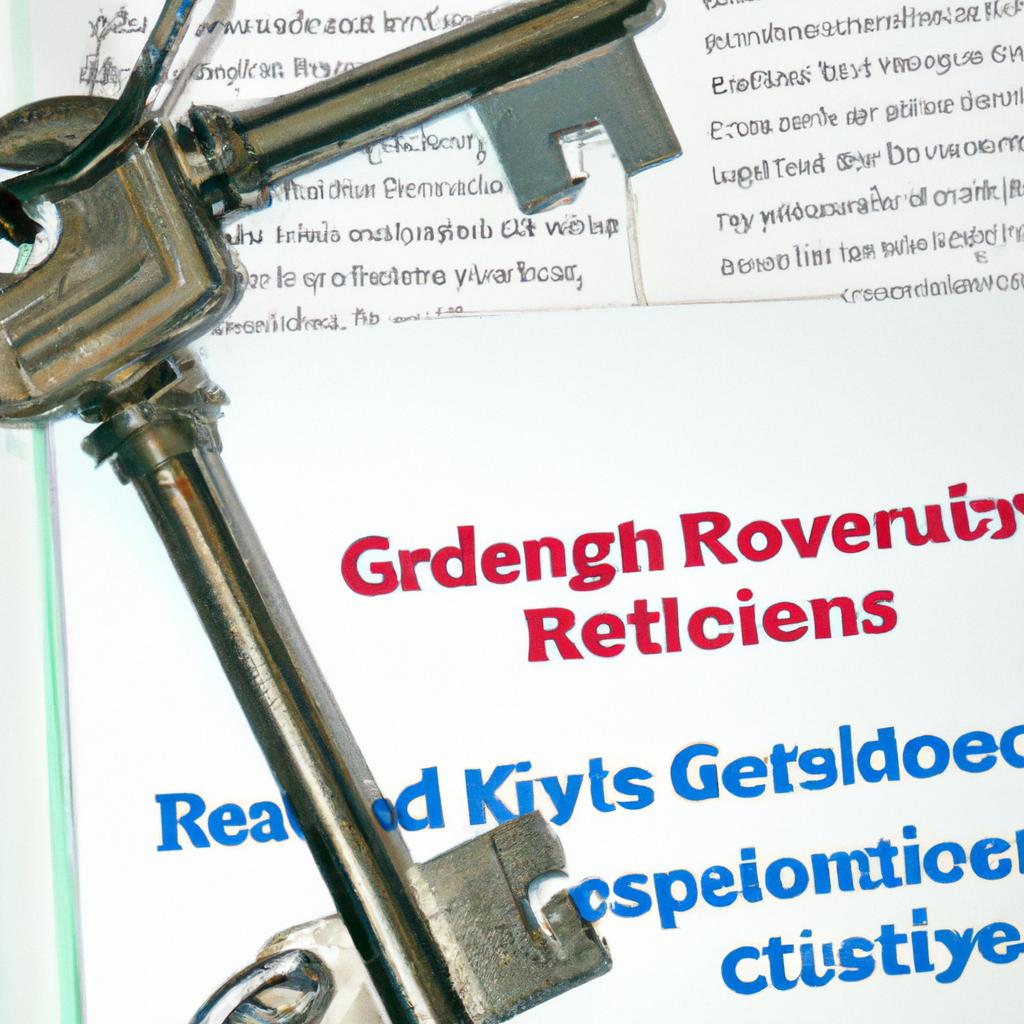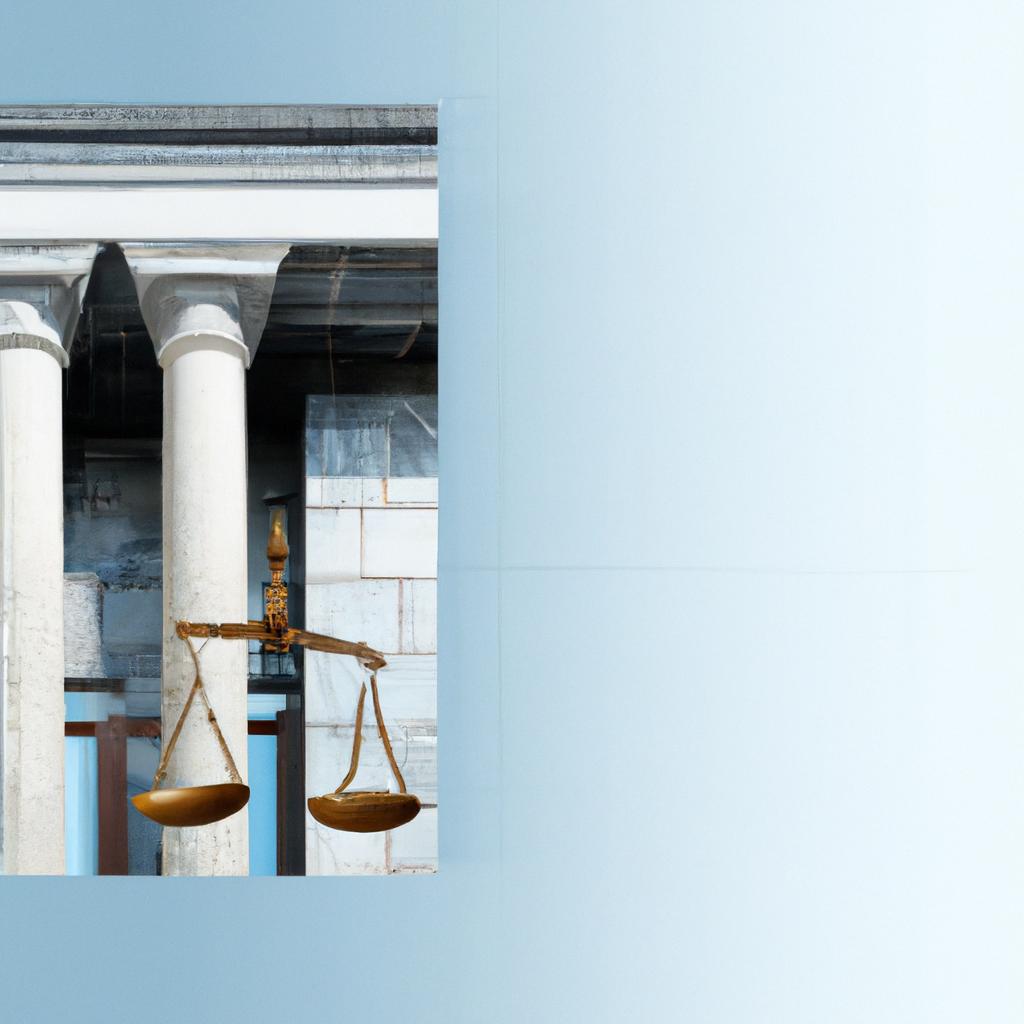Navigating the intricacies of legal jargon can often feel like wading through murky waters. When it comes to matters of custody and guardianship, the distinction between the two can be especially confusing. As experienced legal professionals at Morgan Legal Group in New York City, we specialize in estate planning, probate, elder law, Wills, and trusts. In this article, we aim to shed light on the nuances between custody and guardianship, providing clarity for those seeking to understand their rights and responsibilities in these important legal matters.
Understanding the Legal Distinctions Between Custody and Guardianship
When it comes to legal matters involving children and their care, it is crucial to understand the distinctions between custody and guardianship. While both terms revolve around the well-being of a child, they differ in their legal implications and responsibilities.
Custody:
- Involves the legal right to make decisions regarding the child’s upbringing, such as education, healthcare, and religious upbringing.
- May be awarded solely to one parent (sole custody) or shared between both parents (joint custody).
- Typically arises in divorce or separation proceedings and may involve visitation rights for the non-custodial parent.
Guardianship:
- Grants someone the legal authority to make decisions for a child when the parents are unable to do so, either temporarily or permanently.
- Can be established through court proceedings and requires the guardian to act in the best interests of the child.
- May involve financial responsibilities in addition to decision-making authority.

Key Differences in Rights and Responsibilities Under Custody and Guardianship
Under custody, the individual responsible for the child has the right to make decisions regarding their day-to-day care, education, and upbringing. This includes making choices about the child’s health, education, and welfare. The custodian also has the responsibility to provide for the child’s physical, emotional, and financial needs. In custody cases, the parents may still retain some legal rights over the child, such as the right to make medical decisions or be involved in important decisions regarding the child’s upbringing.
On the other hand, guardianship involves the legal authority to make decisions on behalf of a child when the parents are unable or unwilling to do so. The guardian has the responsibility to act in the best interests of the child and must make decisions that promote their well-being and development. Unlike custody, guardianship may involve more extensive legal rights and responsibilities over the child, such as the right to consent to medical treatment, enroll in school, or even inherit property. Overall, both custody and guardianship are important legal concepts that ensure the well-being and protection of children in various circumstances.

Navigating the Complexities of Custody and Guardianship in Estate Planning
When it comes to estate planning, understanding the differences between custody and guardianship is crucial to ensure your wishes are carried out effectively. While both terms involve taking care of a minor, there are distinct legal implications that can impact your estate plan. Custody typically refers to the physical care and control of a child, while guardianship involves making legal decisions for the child’s well-being.
In the context of estate planning, custody arrangements are usually determined by courts in cases of divorce or separation. Guardianship appointments, on the other hand, are typically designated in advance through legal documents like a Will or Trust. Ensuring clear and specific instructions regarding custody and guardianship in your estate plan can help avoid confusion and potential disputes in the future.

Expert Recommendations for Determining the Most Suitable Arrangement for Your Unique Circumstances
When it comes to determining the most suitable arrangement for your unique circumstances, it is crucial to understand the key differences between custody and guardianship. While these two legal concepts are often used interchangeably, they serve distinct purposes and involve different responsibilities.
**Custody:**
- Involves the physical care and responsibility for a child
- Typically granted to a parent during divorce or separation proceedings
- Allows the custodian to make decisions regarding the child’s upbringing and well-being
**Guardianship:**
- Involves legal authority and responsibility over a person who is unable to care for themselves
- May be appointed by a court for minors or incapacitated adults
- Requires the guardian to make decisions on behalf of the ward, including financial and medical matters
Q&A
Q: What is the difference between custody and guardianship?
A: Custody typically refers to the legal responsibility for a child’s day-to-day care, while guardianship involves the legal authority to make decisions on behalf of a child.Q: Can someone have custody without having guardianship?
A: Yes, a person can have custody of a child without having guardianship rights. Custody can be granted by a court order or through a custody agreement between the parents.Q: How is guardianship different from adoption?
A: Guardianship is a legal relationship in which a guardian is appointed to care for a child, while adoption is a legal process in which the adoptive parents assume full legal responsibility for the child.Q: Are there different types of guardianship?
A: Yes, there are different types of guardianship, including guardianship of the person, which involves making decisions about the child’s day-to-day care, and guardianship of the estate, which involves managing the child’s finances.Q: Can custody and guardianship overlap?
A: Yes, custody and guardianship can overlap in some cases. For example, a person with custody of a child may also be appointed as the child’s guardian if the child’s parents are unable to care for the child.The Way Forward
In conclusion, understanding the distinctions between custody and guardianship is crucial when navigating legal matters involving the care of a minor. While both involve the responsibility of caring for a child, custody typically refers to the day-to-day decisions and physical care, whereas guardianship involves broader legal authority over a child’s well-being. By grasping the nuances of these concepts, individuals can make informed decisions that best protect the interests of the child in question. As always, seeking legal advice from a qualified professional is recommended when facing custody or guardianship issues.
 What’s the Difference Between Custody and Guardianship?
What’s the Difference Between Custody and Guardianship?If you are going through a family law case, you may have come across the terms “custody” and “guardianship”. While these terms may seem similar, they have different legal implications and responsibilities. It is important to understand the difference between custody and guardianship so that you can make informed decisions and navigate the legal processes. In this article, we will delve deeper into what these terms mean, their differences, and how they are granted.
What is Custody?
In family law, custody refers to the legal rights and obligations of a parent towards a child. It involves making decisions about the child’s upbringing, education, healthcare, and other important matters. There are two types of custody – legal custody and physical custody.
Legal custody gives a parent the right to make major decisions regarding the child’s upbringing. This includes decisions about education, religion, medical care, and other important matters. In most cases, both parents share legal custody, unless one parent is deemed unfit or incapable of making these decisions.
Physical custody, on the other hand, refers to where the child will live and with whom. The parent with physical custody is responsible for the day-to-day care of the child. It also includes providing a safe and nurturing environment for the child to thrive in. Physical custody can be sole, shared, or joint depending on the best interest of the child.
What is Guardianship?
Guardianship refers to a court-ordered relationship where a person is appointed to take care of a child or an adult who is unable to care for themselves. This may be due to various reasons such as the death of a parent, incapacity, or neglect. A guardian has similar responsibilities as a parent and is responsible for the child’s well-being.
There are two types of guardianship – guardianship of the person and guardianship of the estate. Guardianship of the person involves making decisions about the child’s daily needs such as food, clothing, shelter, healthcare, and education. On the other hand, guardianship of the estate involves managing the child’s assets and finances.
Differences Between Custody and Guardianship
- Legal Relationship
The main difference between custody and guardianship is the legal relationship between the parties involved. In custody cases, the parents are the legal guardians of the child, and they have the right to make decisions on their behalf. On the other hand, in guardianship cases, the appointed guardian is not the biological or adoptive parent of the child.
- Purpose
The purpose of custody and guardianship also differs. Custody is granted to parents who are capable of taking care of their child, but due to separation, divorce, or other circumstances, they need a legal arrangement to co-parent effectively. Guardianship, on the other hand, is granted when a child has no suitable parent or legal guardian to care for them.
- Legal Process
Obtaining custody and guardianship also involve different legal processes. For custody, parents can come to an agreement through mediation or have a court decide on their behalf if they cannot agree. In contrast, guardianship can only be granted through a court order, and the process usually involves a hearing and representation by a lawyer.
- Duration
Custody is granted until the child reaches adulthood or the parents’ rights are terminated by the court. Guardianship can also last until the child reaches adulthood, but in some cases, it can be temporary until the circumstances that called for it are resolved.
- Degree of Control
Parents with custody have a higher degree of control over their child’s life compared to guardians. They can make decisions about the child’s schooling, medical care, and other important matters without the need for approval from a court. On the other hand, guardians need court approval for major decisions, and they are held accountable for their actions in court.
Conclusion
In summary, custody and guardianship are two different legal arrangements that involve the care and well-being of a child. The main difference lies in the legal relationship between the parties involved, the purpose, the legal process, and the degree of control. It is important to consult with a family law attorney to understand the laws in your state regarding custody and guardianship and determine the best option for your child’s best interest.

